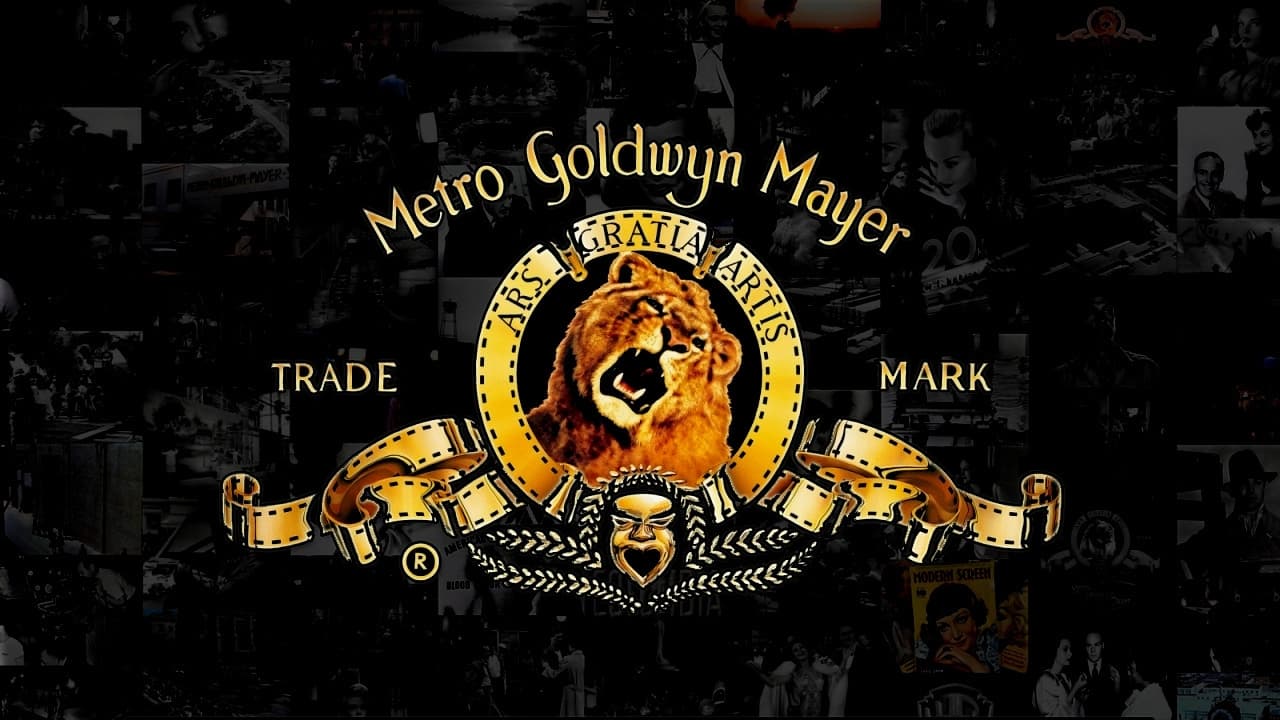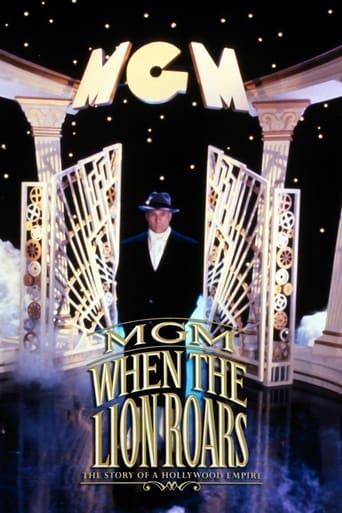

Part One.I have heard the story of how MGM began, but never in such rich detail. This film dove into the daily inter-workings of the studio in the early days and I found it fascinating. I especially enjoyed the insight of Margaret Booth, a film editor at MGM, and specifically her recollection at Douglas Shearer's attention to detail (he could tell when a film was one projection pin out of sync with the sound).This part of the film uses a lot of footage from silent movies and gives background detail on these films. My knowledge of silent films is poor, so I learned a lot in just a few minutes of watching this documentary. I also enjoyed how they talked about the struggle for silent stars to transition to talkies.I had (of course) heard the story of John Gilbert's star falling like a lead balloon, but I never heard the juicy reasons why: he punched LB Mayer when Greta Garbo left him (Gilbert) at the altar and Mayer returned the favor a few years later during a disagreement over a movie.When Part One ended I was struck most by a feeling of "what if?". What if Irving Thalberg hadn't died at just 37? Where would he have taken MGM and what kind of movies would he have given us? I also wonder what Norma Shearer performances we missed out on due to his death (she left Hollywood six years after he died).Part Two.I felt that Part Two wasn't quite up to the standard set by part one. Most notably, part two includes a Hollywood myth that has been debunked: that Jean Harlow died because her mother refused to allow her treatment for uremic poisoning. The fact is that Harlow would have died regardless of when she saw a doctor due to the limitations of medicine in the 1930's.Part Two also details the rising stars of Clark Gable (and his subsequent tragedy when his wife Carole Lombard was killed in a plane crash), Lana Turner, Spencer Tracy, Katharine Hepburn, Judy Garland and Hedy Lamarr. As with Part One, I loved the interviews with people from that era and how they enhanced the story. Mickey Rooney's recollections of Garland were particularly touching.Another highlight of Part Two was the small segment on Luise Rainer. I had never heard of her, but she is the first person to win back to back Oscars. And then she walked away from it all due to the constraints of the studio system. Just hearing this story would have been wonderful, but having it told by Rainer herself brings this film to a whole new level.Part Two ends with a sense of foreboding (brought on by the narrator, Patrick Stewart): Storm clouds are swirling off in the distance. Could the happy days at MGM be coming to an end? Part Three.Part Three begins in the heyday of MGM's legendary musicals and they cover the best of the best in detail: Singin' In The Rain, An American In Paris and Gigi. There are numerous interviews with Vincente Minnelli and he talks about his movies and about Judy Garland. As with all of the interviews in this film, I love hearing his insights and opinion.Part Three seemed to contain more interviews than the other two parts of this movie. (I have no idea if this is true, it was just my impression.) Besides recalling specific movies, many of the interviewees talked about Louis B. Mayer. These opinions confirmed what I already suspected: people either loved or hated the man; he was either a wonderful father figure or an evil manipulator.After the musical era, MGM began its slow decline. I knew the rough facts of how and why this happened, but I had never heard the gory details. As a lover of classic movies, I found the last hour or so of this film to be very melancholy. The golden age of Hollywood had to end, but it was still sad to watch it unfold on the screen.Summary.The absolute highlight of this movie was all of the interviews. Besides actors, we hear from directors, producers, writers, film editors, studio executives and contract dancers. These are the people who were there during the golden era of MGM and having their remembrances on film is truly priceless.I almost didn't watch MGM: When The Lion Roars because it's six hours long and I doubted that anything could hold my attention for that long. I am so glad I took the time to watch all three parts of this movie. It was well worth it. Not only did I learn a lot, but it was very entertaining. I saw clips from many of my favorite movies and the clips from movies I haven't seen left me with a list of movies that I want to see.Bottom line: if you love classic movies, this is a must see.
... View MoreAfter all these years I still remember this documentary vividly. I haven't seen it since it originally aired on TV in 1992 - and boy was I disappointed when I found out I couldn't borrow it from my local library, because some jerk had stolen the videotapes! I think that just proves this mini-series should be made available on DVD, eh? There's obviously great demand for it."When The Lion Roars" was fascinating and made me want to see all of MGM's classic films (so the documentary achieved it's goal!). Warner Bros owns MGM's films now (and this mini-series) and I suspect they're not doing all they can to keep MGM's history alive - they're much more inclined to release their own Warner films on DVD, it seems to me!Anyway, I'm just dying to watch "When The Lion Roars" again - it would be even more interesting now that I'm older and would recognize more of the film clips and people being interviewed! But the fact that a clueless youngster like I was, still found it so entertaining and memorable, certainly says a lot about the quality of this documentary... and the quality of MGM's classic movie legacy.
... View MoreThis is a must for Hollywood film buffs (especially those who love films from the 1920s to the 1950s). It tells the story by narrator/host Patrick Stewart of the history of the famous MGM studios from its beginning in 1924 to its fall in the early 1980s. Includes interviews with many MGM stars such as Helen Hayes, Jackie Cooper, Joan Crawford, as well as directors Clarence Brown and King Vidor. Clips from nearly every MGM film are shown, some you will see are: THE WIZARD OF OZ, GRAND HOTEL, GREED, BEN-HUR, THE WOMEN, GIGI, GONE WITH THE WIND, A WOMAN'S FACE, NINOTCHKA, GRAND PRIX, SINGIN' IN THE RAIN, etc. The documentary is very long, but worth seeing. Usually shown on PBS, but is available for purchasing. 4 stars here!
... View MoreA great documentary, beautifully detailed and put together with great style. Many of the people interviewed are gone, so this is indeed a treasure of the ages. I purchased the three cassette tape of the series and recommend to any avid movie fan to do the same. It's something that can be viewed again and again.This series is fascinating, but also very sad. Metro-Goldwyn-Mayer, the greatest studio of them all, is no more. It's heartbreaking that Columbia Pictures, once considered the poverty row' of studios, now occupies the site of MGM.
... View More